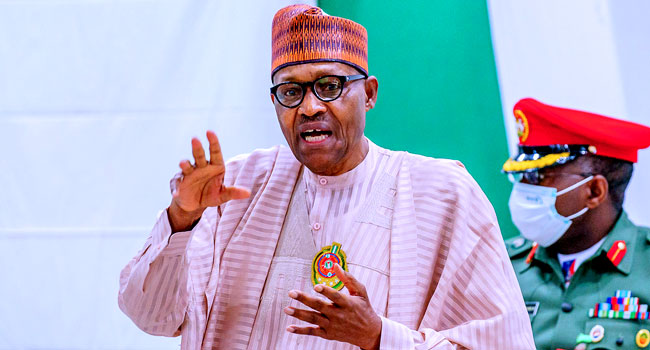Senior Special Assistant to the President on Media and Publicity, Malam Garba Shehu, has again risen to a spirited defence of President Muhammadu Buhari over the rentention of service chiefs despite calls for their removal.
For him, the appointment and removal of the service chiefs are entirely at the convenience of the president.
According him, the president might be seeing in them what critics are not seeing.
He spoke while featuring on Channels Television programme Politics on Sunday.
He said that the appointment of Service Chiefs was not a tenured appointment as he defended President Muhammadu Buhari’s decision to retain the Service Chiefs despite persistent calls for their sacks.
According to him, Nigerians should trust President Buhari who may be seeing something positive in the Service Chiefs for him to have retained them.
He said, “It is because he is seeing things that critics are not seeing. He is seeing things most people don’t see.
“It is not a tenured appointment. There is no part of the law that says Chief of Army Staff must serve for two years. Then, after two years, he must go.
“He serves at the pleasure of the President. Now, the President has said again he will make changes. When will he make those changes? It is entirely up to him. I think Nigerians should give him the benefit of the doubt.”
“This country has always been challenged by issues of insecurity. No country is crime free. The challenges are mutating. They are transforming from one form to another.
“But all hands are now on deck. From the resolutions we are seeing, particularly coming from the President, 2021 is going to be very decisive in dealing with Boko Haram, banditry, and kidnapping.”
Shehu outrightly dismissed insinuations that the President was not in charge of his government.
“President Buhari is healthy, fit, and fully in charge of his government. Let no one make mistake that they can chance the President on this thing. The fact is that the President is calm, patient, and not bullish.
“He was once a military Head of State. He had executive power, legislative power, and judicial power under the military as Commander-in-Chief. But it’s about dictatorship. So, he knew power and how to wield it.
“But the fact that he is here as an elective president in charge of one of the three arms of government, the executive arm of government, this has changed on how much he can really go after them. He can only persuade the parliament. He as President will also not like to be seen as dictating to the courts.”













